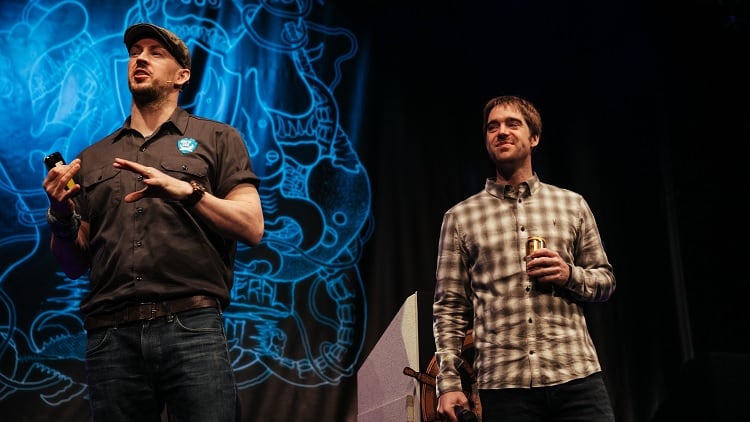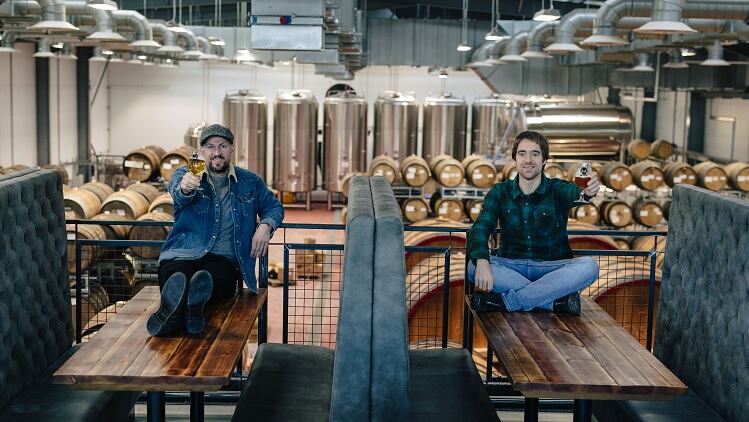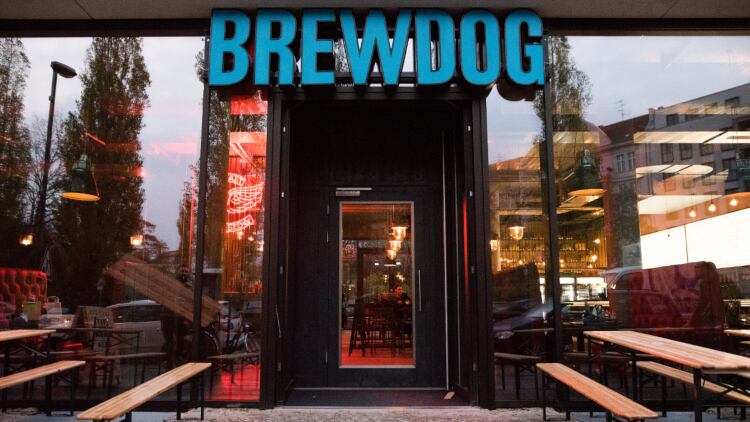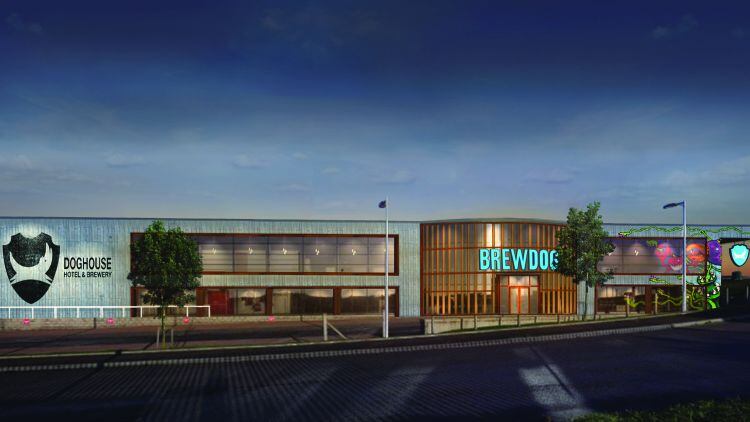BrewDog in numbers
- 136m – bottles of beer shipped in 2018
- 0.9% – BrewDog’s UK beer market share
- 55% – growth in turnover last year
- £576,000 – BrewDog’s pre-tax loss in 2018 (versus a £1.4m profit in 2017)
- 97,030 – Equity Punks (at the time of the AGM)
- £171.4m – total sales in 2018
- £68m – the total amount raised in crowdfunding before the sixth funding round of Equity for Punks
- Summer 2019 – when it’s estimated that BrewDog will reach 100 venues worldwide
At the time of writing there are more Equity Punks than there are people living in Bath.
Over an April weekend, close to 15,000 of them descended on the Aberdeen Exhibition and Conference Centre – a mouthful mercifully abbreviated to the AECC for those calling a taxi home after a day enjoying 111 beers spread over 15 bars – for BrewDog’s 2019 AGM, the last to be held there before the annual mayhem moves to the futuristic sounding TECA (The Event Complex Aberdeen) and a bigger stage.
BrewDog’s sixth round of Equity for Punks crowdfunding aims to grow its shareholder community to 200,000 – roughly the population of the Granite City – and take the total amount raised via crowdfunding beyond £70m.
While James Watt and Martin Dickie launched the latest scheme in a business update at 1pm, by the time I’m introduced to the pair three hours later, it’s already raised around £85,000.
Just how do BrewDog’s founders explain this fanaticism?
“We’re quite different as a company,” Watt ventures. “We’re very open and transparent in terms of what we do and what we believe in. We’ve taken a stand and people see the focus we have on quality and innovation in our beers. Our Equity Punk community love how well we look after our people as a living wage employer and by investing in our teams as well.
“The Equity Punk model was designed to shorten the distance between ourselves and the people who enjoy our beers. The AGM is the ultimate manifestation of that philosophy.”
Dickie adds: “As the company’s developed over the past 12 years, we just try to capture all the things we’re super passionate about and I think that comes across with the investors as well.
“All those things create a really special mix, like being able to have today – amazing beer and amazing people.”

Beyond the mainstream
Despite revealing in its latest update that BrewDog accounts for just 0.9% of the UK beer market – “still so tiny” according to Watt – there’s little doubting that the company, founded by the school friends in 2007, has gatecrashed what was previously a closed bottle shop.
“The reason we started the company in the first place was the frustration or disillusionment as to why you have to drink ‘pish’,” Dickie explains. “If you’re going to put something in your mouth for the sake of taste, why compromise on that? You shouldn’t need to have the lowest common denominator of anything, you should expect the minimum standard of good quality. The really exciting thing that we have is the exploration into what the pinnacle of what these things can be. By no means am I putting a sip of Tennent’s lager in my body.”
Dickie explains that one of BrewDog’s most important missions has been to encourage beer drinkers to explore beyond mainstream mainstays of the bar and the booze aisle.
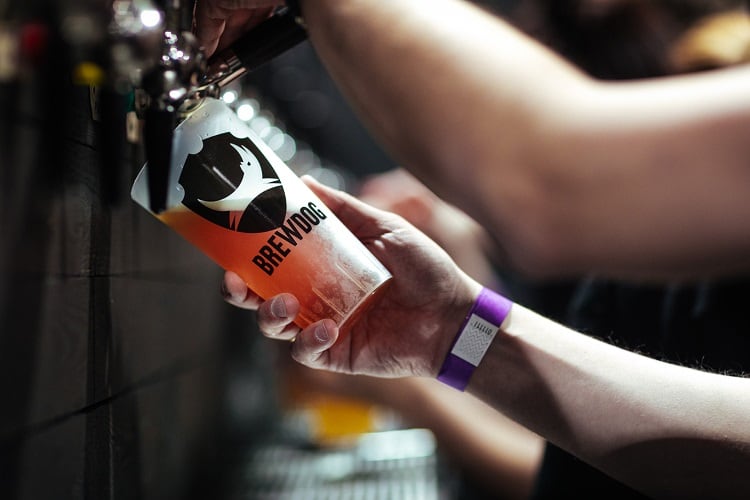
“When I was 16 and I drank a Tennent’s lager, it’s a beer, it’s all I know,” Dickie explains. “But then when we’re 17/18 and you’re down in Edinburgh and you taste a Sierra Nevada pale, it’s like ‘holy sh*t, what is this?’ it’s mind-blowing. Those experiences are why we started the brewery in the first place. Why are we the only ones who know that, and why doesn’t everybody else know that? It’s a tide that’s slowly turning and people now, with social media, become educated very quickly. It’s not too hard to get a message out quickly, which is great.”
Watt adds: “The mass-market, multinational global corporations have commoditised and bastardised beer and turned something amazing into all those common denominator products that we hate. We exist because what they do is so bad.”
This unwavering commitment to product quality is BrewDog’s biggest strength, according to Watt. “We’ve amazing equipment, we’ve got 26 people working on our quality team, we live and die by what’s in the glass and what’s in the bottle,” he explains. “A steadfast and resolute focus on that is what’s got us here and that’s what’s going to keep us building our business.”
Exciting the on-trade
Dickie explains that BrewDog’s growing estate of bars has a unique role to play in encouraging beer drinkers to seek and enjoy higher quality from whatever they’re consuming.
“I love our bars around the UK in terms of letting people know if they’re unsure about craft beer there’s somewhere they can go where everyone behind the bar is going to take you on that journey,” he explains. “Whether you’ve tasted craft beer for the past few years, or whether you’ve never tried it at all, staff know how to gauge it perfectly, pull you in, and expand your knowledge about what it is. For me, that’s one of the most important bits – educating yourself, being able to understand a little bit more and push yourself forward through beer. But then once you get yourself to beer its then a whole other group of things: spirits, coffee, wine, whatever, it’s really exciting once you get into that.”
The pair explain that BrewDog’s vow to create unique, high-quality products can spill over to help an on-trade beset by challenges and continue to create rewarding and engaging customer experiences at venues such as those Dickie describes.
“We support the on-trade by giving them something that is different to the offering that they have,” Watt explains. “By giving them something that consumers are genuinely excited about, something that’s got momentum and credibility and that loads of people are passionate about in the UK market.” With a swathe of new beer and spirit launches at the AGM, including a new boilermaker series, greeted by the assembled punks like Millennials losing the plot over the latest iPhone, the excitement is clear to see.
“The on-trade has had a hard time,” he continues. “I think it’s been in decline and I think it’s had a bad rap, and I think that’s in part because they haven’t been offering consumers what they want. We give them the opportunity to offer consumers something that resonates with them and something that sells well.”
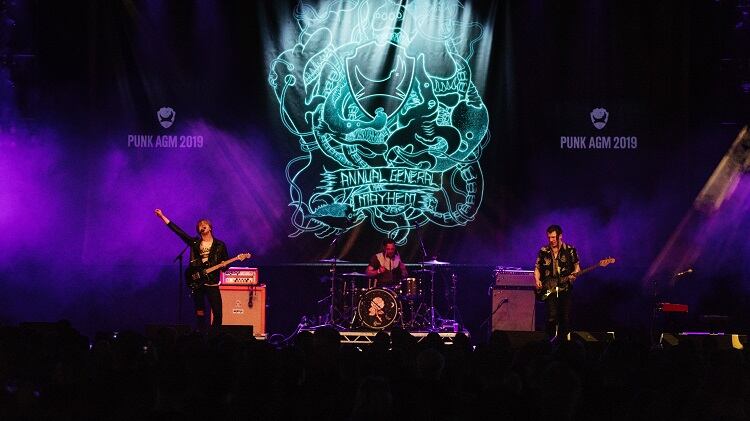
Global focus
While BrewDog’s estate is poised to exceed 100 venues globally in summer 2019, selling products to both independent pubs and national on-trade brands remains a key part of the independent brewer and operator’s business according to Watt.
A host of new sites earmarked for 2019 to follow on from 14 openings across London and the south-east in 2018 means the UK is “reasonably well covered”, according to Watt, with he and Dickie’s immediate focus for BrewDog’s hospitality business more global.
“We quite like to match openings with where we’ve got good distribution,” Watt explains. “We’ve just opened in Paris. France is a really good market for us so by opening in Paris, we can add momentum to what we do.”
The recent acquisition of Stone Brewing’s brewery and taproom in Berlin, Germany, is “hugely important” according to Dickie. “We’ve been able to take over the site from Stone and make it our own, it’s a big opportunity from the production and retail side.”
However, Watt adds that the new facilities in Berlin could take on added importance amid all the uncertainty surrounding Brexit.
“If anyone’s got any idea what the hell’s going to happen then I can tell you whether it’s going to have an impact on us or not but I think just the uncertainty is bad for all business,” he says. “In Britain, the fact it’s been delayed and delayed and delayed is just so tough for business. We’re delighted with the Berlin facility, it’s a community place and it gives us the option of making beer in mainland Europe if we need to.”
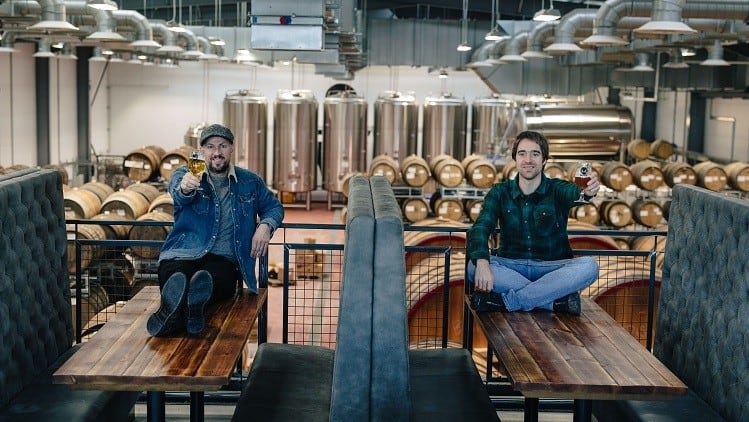
Insane highs and lows
“Given that we started off 12 years ago with two people, one dog, in a derelict dystopian shed that was falling to pieces with cobbled-together second-hand equipment, I think we’re reasonably happy with where we’ve got in that time,” Watt summarises. “We’ve both pushed it to the edge and sometimes when you do that, you push it a little bit too far, sometimes you go a little bit too hard, but I think overall we’re quite happy with what we’ve done and achieved.”
Dickie adds: “We’ve got the same belief in what we’ve been trying to do. In 12 years there have been some insane highs and some insane lows.”
While the results and progress allude to a relentlessly serious venture, the overriding feeling from Watt, Dickie and the AGM, is of friends having fun.
Maintaining the irreverent feel, when asked about what personal goals the pair have over the next year, Watt responds, deadpan: “I’ve got a Lego Millennium Falcon that I want to finish building. My daughter hides all the important bits,” with Dickie adding “I’m thinking more like a one-hour-thirty-minute half marathon. Beer isn’t helping.”
“We’re still completely tiny in the overall scheme of the global beer market,” Watt continues. “We’ve still got so many things that we want to do and I think what we’ve done so far gives us a platform to push on and achieve those, but we’re both very focused on making this company as good as it can be, and making our beers as good as they can be and seeing where it gets us.”
Pressing for specifics, I ask whether the opening of a microbrewery in a football stadium as Beavertown have at Tottenham’s new £1bn ground would be up their street. With an eyebrow almost vanishing beneath his ever-present flatcap, Watt quizzes “Beavertown... or Heineken?” before the Chelsea fan (Dickie supports Spurs) reveals it’s not one for them.
Asked whether brand partnerships such as their recent British Airways connection, transatlantic pale ale Speedbird 100, would become the norm, Watt explains: “We see that as a one-off with an exceptional company that we love rather than a key part of our strategy going forwards.” Dickie adds: “It was a double win because we always wanted to brew a beer in an airplane. Also, we travel a lot and you end up not being able to drink beer because it’s always crap.”
The future looks exciting but, as yet, undefined for Dickie and Watt, who summarises: “Who knows what we’ll think is a good idea in a few weeks or a few months’ time?”

